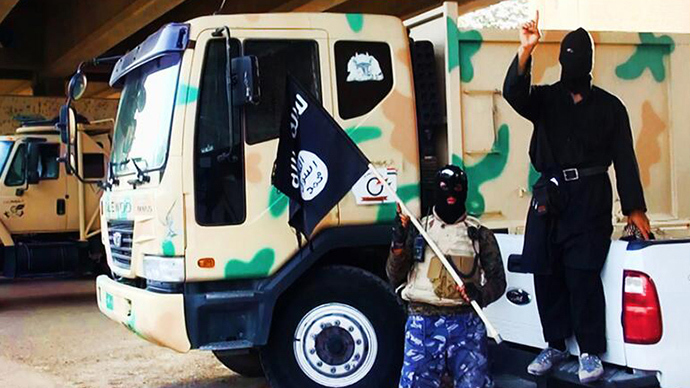Sunni insurgents seizing nuclear materials is 'a very serious development'

It’s not just about the material possibly taken by some radical group, it’s about what it could be used for, and a dirty bomb is a potential outcome, Walid Phares, an advisor to the Anti-Terrorism Caucus in the US House of Representatives, told RT.
On July 8, Iraq's UN Ambassador Mohamed Ali Alhakim sent a letter to the UN Secretary-General Ban Ki-moon, saying that “terrorist groups” have seized nuclear materials used for scientific research at Mosul University in the country's north. According to Alhakim, about 40 kilograms of uranium compounds were kept there, and they "can be used in manufacturing weapons of mass destruction." This news came a day after Iraq told the UN that insurgents had taken control of a former chemical weapons facility located north of Baghdad.
RT:How serious is this new development?
Walid Phares: It is a very serious development regardless how weaponized this material could be. Of course, in Washington there is going to be a debate about is this really propaganda from the Iraqi government or it is real? No matter what, if that material has really been taken by ISIS or by any other jihadist faction, it’s not just about the material, it’s about what this organization can use this material for, and a dirty bomb could be an outcome. I think that in the next few days the US government, both executive and in the Congress, is going to focus on this issue, but at the same time they are going to try to downplay it because of the seriousness of that; they do not want to create a political crisis before they are sure of what this material is.
RT:According to some experts, the Uranium in question is not the enriched type used in weapons. Can it still be used for terror attacks?
WP: For dirty bombs possibly, even for less than that. I mean just displaying this material and also what we don’t know is what would be the next component they are going to add to this. If this is the truth that they have a unit that understands how to identify such material, they have a “chemical unit” or unit that knows what it is, and then we would look at other positions in Iraq, at other locations. So the worry is about the ISIS intention to use this kind of material, if not this specific one, but the idea of a general material in their warfare.
RT:The Iraqi envoy said he's worried about the Uranium being moved across borders - is he right to be concerned?
WP: The first border that I thought about immediately is the Iraqi-Syrian border. It is now seized by ISIS on both sides of the border. We are talking about dozens if not hundreds of kilometers from the north of Iraq to the center of Iraq. That would be one. Another type of border to be concerned about is Saudi Arabia and Jordan of course.
RT:Can we expect some kind of international response to this?
WP: At the Security Council, I imagine, if the US, Russia and other countries are going to investigate the matter, remember that Iraqis have gone to the UN, that’s the route they chose and therefore the UN will have to respond to that. But I’m sure at this point in time the intelligence services of the five major permanent countries at the UN and others are already looking into this.
RT:What does this recent development say about security in Iraq and the region more generally?
WP: What has happened now with this information, and probably other information that is going to come in the future is that ISIS is not just a local Iraqi insurgent group or even not Iraqi-Syrian. It is a regional force now, and if it is not contained by the international coalition of all parties concerned, it is going to use its cells around the world and that would be Europe, North America, Russia or even the Arab world.
The statements, views and opinions expressed in this column are solely those of the author and do not necessarily represent those of RT.
The statements, views and opinions expressed in this column are solely those of the author and do not necessarily represent those of RT.












